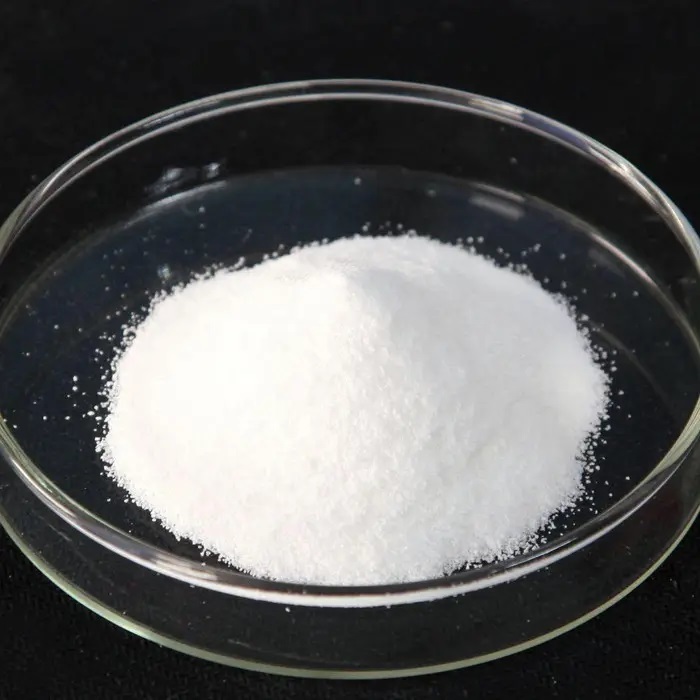Thickeners are a type of additive that can increase the viscosity of food or form a gel. Thickening agent can make food sticky, smooth and refreshing, with a special flavor and water retention effect. It also has the function of stabilizing the emulsified or suspended state.
Thickeners are hydrophilic polymer compounds and are divided into two categories: natural thickeners and chemically synthesized thickeners. Most natural exaggerating agents are prepared from plants and seaweeds containing polysaccharide mucilage substances, such as starch, gum arabic, pectin, agar, alginic acid, etc. They can also be prepared from animal raw materials containing protein, such as gelatin and casein. wait. There are also those produced by microbial fermentation, such as xanthan gum. There are fewer synthetic thickeners, mainly technical methylcellulose (CMC), active starch, etc.
1. Gelatin
Gelatin is collagen contained in animal skin, bones, cartilage, ligaments, muscle membranes, etc. It is a high molecular polyurethane compound obtained through purification and primary hydrolysis. Its main production methods include Tibetan method and enzymatic method.
Alkaline production involves liming (using calcium hydroxide solution) the sorted bones or cut animal skins, neutralizing them with hydrochloric acid, and washing them with water. Glue is made by boiling it at 60~70C, and then it is made into finished product after antisepsis, bleaching, gelling, shaving and drying.
During enzymatic production, the raw material skin is decomposed with protease, then treated with lime for 24 hours, neutralized, gelatinized, concentrated, gelled, and dried. Prepared products.

Gelatin has strong hydrophilicity and jellying power, and its products have good elasticity and extrusion resistance. Because of its low melting point, the products have an entrance Instant melting characteristics. It can be widely used in candy production as a gelling agent, stabilizer, emulsifier, adhesive and water retaining agent. It can also be used in pastries, cold drinks, canned food, etc. and as a clarifier for wine and fruit juice.
Gelatin is a fat-free, high-protein protein that contains 18 kinds of nitrogen-based acids and does not contain cholesterol that can cause some epilepsy in the human body. It has high nutritional value. . For a long time, the supply of edible gelatin in the world has been in short supply. Due to the inability to purchase animal bones, skins and other raw materials in my country, the contradiction between supply and demand of gelatin is quite sharp.
2. Seaweed glue
Sea gel is extracted from brown algae – kelp. It is a linear polymer formed from mannonic acid and gluconic acid through A-L4-xitogen. Its varieties include water-soluble sodium alginate, potassium salt, alginate salt, and water-insoluble calcium alginate salt, iron salt, etc. The most commonly used one is sodium alginate. It can not only be used as a thickening agent for flour products, but also has nutritional and health care functions. As a thickening agent, it can be used in cans, ice cream and noodles, with a maximum usage of 1.5g/kg. „
Sodium alginate is developing rapidly in my country, and the proportion of food-grade products is increasing year by year. In addition, my country has also developed propylene glycol alginate (PGA). It is the best foam stabilizer and can be used in wine, soybean drinks, juice yogurt, juice milk powder, juice drinks, frozen foods, etc. It is a good additive stabilizer.
3. Carboxyl Methyl Cellulose (CMC )
CMC is synthesized from fibers (fly wool, linters, paper pulp, etc.), sodium oxide, and monooxyacetic acid as raw materials. It is a food-grade CMC (purity N97%) in which glucose is linked through 1.4-glucose bonds. It has excellent properties such as thickening, suspension, adhesion, stability, emulsification and dispersion. It is the main food thickener for dairy beverages, ice products, jelly, flavorings, alcoholic beverages and various canned foods.
Although CMC has been produced in my country for a long time, most of it is industrial and crude products, with few pharmaceutical grade and food grade. Therefore, it is necessary to improve the process, improve quality, and strengthen its application research in the food field.
4. Xanthan Gum
Xanthan gum is a biopolymer composed of D-glucose, D-mannose and D-glucuronic acid in a high molar ratio. Molecular acidity is produced by microbial fermentation. Xanthan gum is a safe, reliable, non-toxic, and excellent thickening agent, emulsifier, and stabilizer. It dissolves in hot or cold water and produces a high-viscosity solution; it has good stability, such as a 18 Its viscosity is not affected within ~8 (TC); within the pH range of 1~13, its stability can be maintained for several days; it has strong stability against the oxidizing and reducing properties of various fermented acids, and can also be used as additives with a variety of food Compounded with synergistic effect, xanthan gum is widely used in frozen food, liquid…In sauces, flavored breads and canned foods.
5. Carrageenan
Carrageenan is extracted from red seaweed. It is a polysaccharide sulfate ester composed of galactose and anhydrogalactose. Its main feature is that it can interact with proteins, especially Casein reacts to form a stable complex. It can be used as thickener, coagulant, suspending agent, emulsifier and stabilizer. It is the most viscous variety of edible glue and is mainly used in candies, frozen products, fruit jelly, jelly, instant tea, coffee, beer and wine. Class etc.
Carrageenan is very popular in the domestic food industry. It is used in the production of popular jelly and frozen powder. However, the quality of F product is unstable, its solubility and gel-forming properties are poor, and its water retention is poor, which affects the production and sale of R jelly.

 微信扫一扫打赏
微信扫一扫打赏

